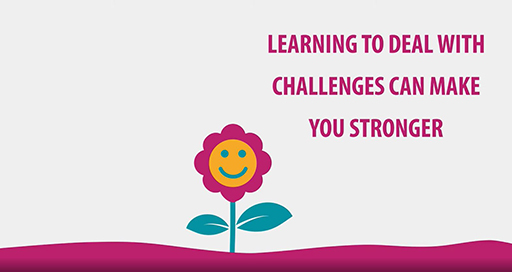1.3 Resilience
When engaging with diversity and inclusion, resilience can be another important skill. This might be:
- the resilience required to keep challenging discrimination whenever you see or hear it
- the resilience required to speak with managers and leaders when you are experiencing discrimination yourself
- the resilience required to persevere with the diversity and inclusion agenda in your organisation, despite facing the barriers you considered in Week 4.
In each case, your personal resilience will play an important part in maintaining your progress.
Watch this short animation to learn more about personal resilience and how you can build it.

Activity 3 Reflecting on the resilience video
Reflecting on the video you have just watched, what are the key takeaways for you? Make some notes in the box below. Watch it again and pause it if you need to.
Comment
You might have chosen to highlight the point about focusing on what you can control and having a plan, or you may have noted the importance of replenishing your own energy in order to enhance your resilience in the face of adversity.
Resilience is an increasingly important skill in the changing workplace, so it is well worth developing.
Developing your resilience
Waters (2021) offers the following tips:
- pay attention to your health – healthier people are more resilient
- focus on your physical wellbeing – through adequate sleep, healthy eating and regular exercise
- practice relaxation techniques – staying relaxed in stressful situations will make you more resilient
- practice reframing threats as challenges – seeing something as a challenge means we recognise the possibility of growth
- mind your mindset – our beliefs, attitudes and mindsets influence our resilience
- get connected – having a good social support network is important
- practice self-awareness – this can help us recognise when our resilience is low
- watch your stress levels – learning to recognise when we feel stressed, and knowing what helps us to de-stress, allows us to catch ourselves before it spirals.
The personal resilience of those leading or supporting the diversity and inclusion agenda within your workplace can have a big impact on the success of their leadership.
If you want to learn more about resilience at work, investigate the OpenLearn badged open course: Developing career resilience [Tip: hold Ctrl and click a link to open it in a new tab. (Hide tip)] .

